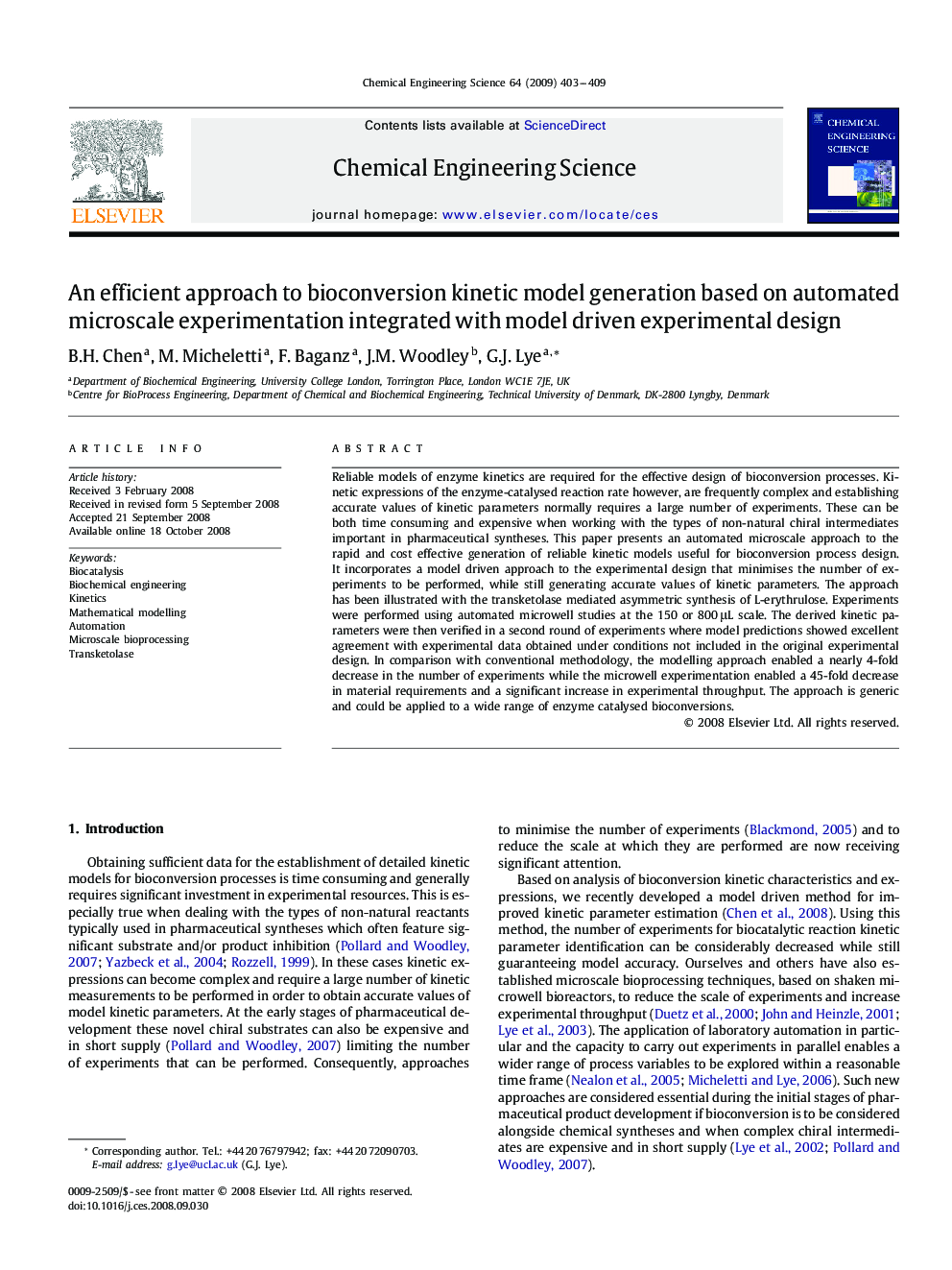| Article ID | Journal | Published Year | Pages | File Type |
|---|---|---|---|---|
| 158032 | Chemical Engineering Science | 2009 | 7 Pages |
Reliable models of enzyme kinetics are required for the effective design of bioconversion processes. Kinetic expressions of the enzyme-catalysed reaction rate however, are frequently complex and establishing accurate values of kinetic parameters normally requires a large number of experiments. These can be both time consuming and expensive when working with the types of non-natural chiral intermediates important in pharmaceutical syntheses. This paper presents an automated microscale approach to the rapid and cost effective generation of reliable kinetic models useful for bioconversion process design. It incorporates a model driven approach to the experimental design that minimises the number of experiments to be performed, while still generating accurate values of kinetic parameters. The approach has been illustrated with the transketolase mediated asymmetric synthesis of L-erythrulose. Experiments were performed using automated microwell studies at the 150 or 800 μL scale. The derived kinetic parameters were then verified in a second round of experiments where model predictions showed excellent agreement with experimental data obtained under conditions not included in the original experimental design. In comparison with conventional methodology, the modelling approach enabled a nearly 4-fold decrease in the number of experiments while the microwell experimentation enabled a 45-fold decrease in material requirements and a significant increase in experimental throughput. The approach is generic and could be applied to a wide range of enzyme catalysed bioconversions.
